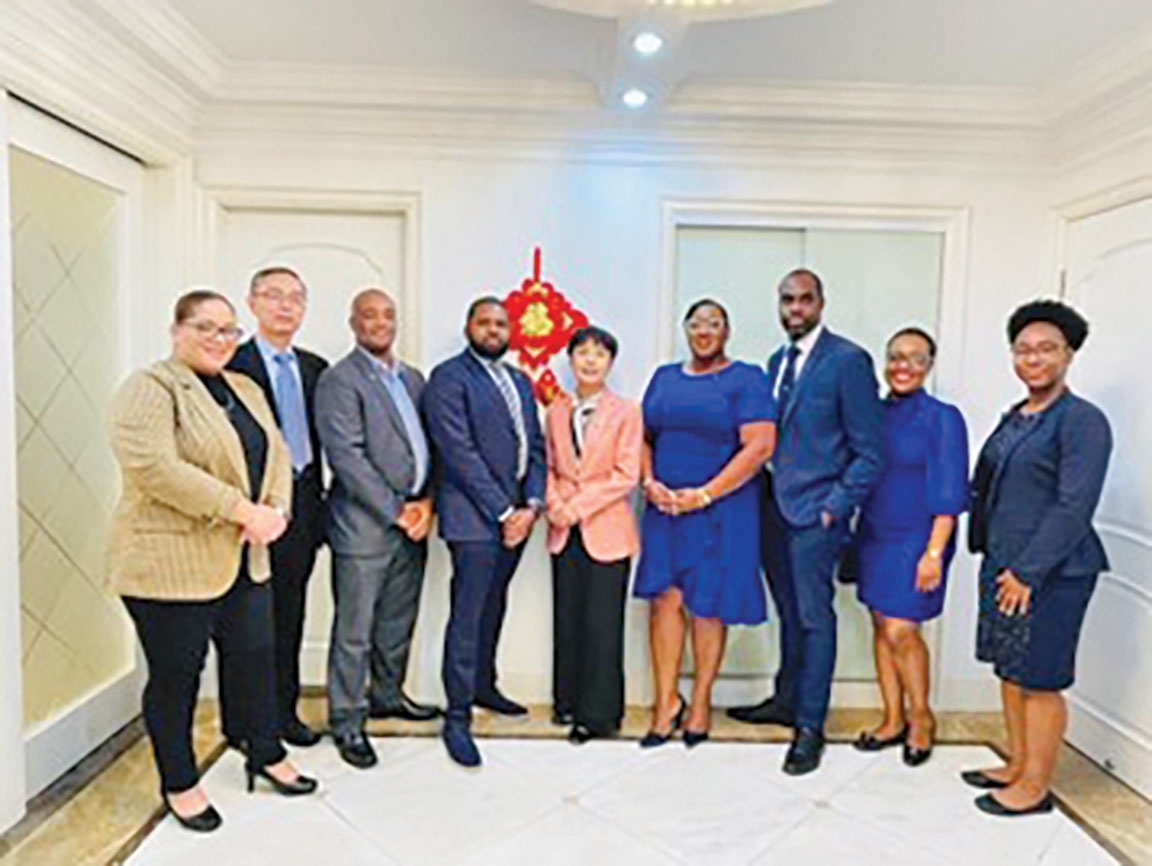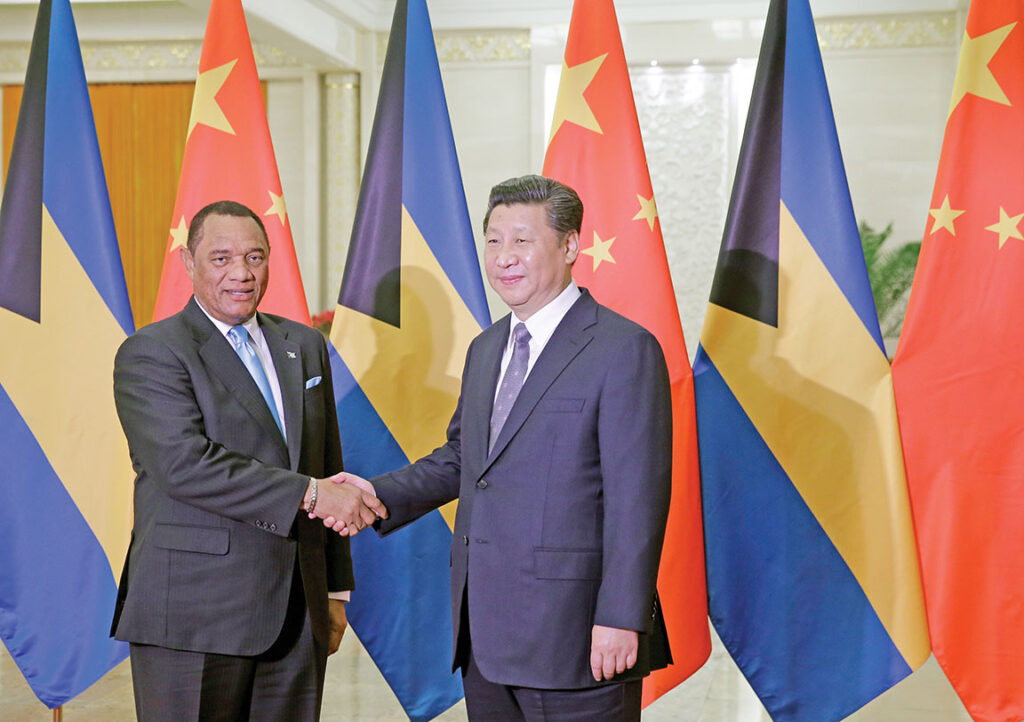Then-Prime Minister Perry Gladstone Christie of the Bahamas, left, is greeted by Chinese General Secretary Xi Jinping before a bilateral meeting in January 2015 at the Great Hall of the People in Beijing. THE ASSOCIATED PRESS
DR. ANTHONY CLAYTON
The People’s Republic of China (PRC) has vastly increased its presence in the Bahamas over the last two decades. The regime has been steadily investing in the nation – acquiring infrastructure, land and assets – with increased emphasis on investments, notably in fisheries. The PRC also is developing political influence with deep and sometimes ethically controversial engagement of local politicians and journalists, extending economic influence, building its image with COVID-19-related assistance, developing high-level access to security forces, and greatly increasing its footprint along the so-called third border of the United States. This PRC program is now well advanced in the Bahamas.
One face of this active multidimensional public diplomacy strategy in the Bahamas was China’s former ambassador to the Bahamas, Dai Qingli. Dai Qingli is energetic and young, a highly skilled foreign policy expert and a seasoned communicator. Her strategy was to influence Bahamian public opinion and convince people the country’s ability to accelerate its development and attract investment can be achieved through an enhanced relationship with the PRC.
Concurrently, the PRC has steadily worked to increase its influence over the Royal Bahamas Defence Force. Training courses for RBDF officers, initially in disaster management and humanitarian relief operations, mirroring similar training offered by the United States, were offered by the PRC. In 2016, Capt. Samuel Evans of the Royal Bahamas Defence Force participated in the 9th Seminar of Senior Defence Officials from the Caribbean and South Pacific in China, the first step toward a more permanent relationship. In 2015, the PRC made a direct approach to the Bahamian government, offering military aid and asking the country to list its requirements. As a result, the Bahamas received $1.2 million in aid, two armored vehicles and riot-control equipment.

While much of the PRC’s investment in the Bahamas has been economic, several projects could be construed as dual purpose and potentially exploitable by the PRC’s military. Through concessional loans, the PRC helped build the Nassau Airport Gateway and North Abaco Port. By way of commercial development projects, the Chinese built Baha Mar and The Pointe resorts, and now Baha Mar is the largest private employer. The Port in Grand Bahama, the biggest container port in the Caribbean region, is also a significant Chinese commercial development project.
The PRC’s interest in gaining a foothold in the Bahamas’ agriculture and fishing is tied to its ambition to strengthen its security operations in the Caribbean region, and more specifically in the Bahamas, due to its proximity to the United States and U.S. military operations, with a major proposed development in a strategic location beside the U.S. Navy’s Atlantic Undersea Test and Evaluation Center (AUTEC), which was established on Andros Island after an agreement in 1963 with the United Kingdom and with the concurrence of the Bahamian government. Before being voted out of office in 2017, the Progressive Liberal Party (PLP) had seriously considered a Chinese agriculture and fisheries deal on Andros. This would have given the PRC the ability to closely monitor all developments in submarine warfare and technology at the AUTEC facility. This deal is currently in abeyance but may yet be resurrected as the PLP is now back in power.
While it is unlikely that any of these projects will pose a direct military threat to the U.S., the proximity of Chinese intelligence and surveillance assets to the U.S. mainland is a potential security risk, and U.S. citizens may find themselves the targets of Chinese monitoring, including cellphone traffic. In December 2020, a Guardian newspaper article reported allegations from a senior mobile security executive that China appears to have used mobile phone networks in the Caribbean to surveil U.S. mobile phone subscribers. The expert alleged that U.S. citizens traveling abroad were targeted with messages indicative of surveillance of mass movement patterns and communication through two Caribbean operators: Bahamas Telecommunications Co. and Cable & Wireless Communications in Barbados. State-owned Chinese providers China Mobile and China Unicom were identified as the major source of these alleged attacks, and the original report suggested that BTC and other Caribbean communications providers may have unwittingly facilitated the surveillance by selling or leasing network addresses to Beijing-controlled entities.
U.S. Homeland Security agencies should therefore be concerned about the extent of Chinese engagement in the Bahamas. A sustained campaign of engagement and cooperation with the Caribbean nations is needed to counter the spread of PRC influence.

